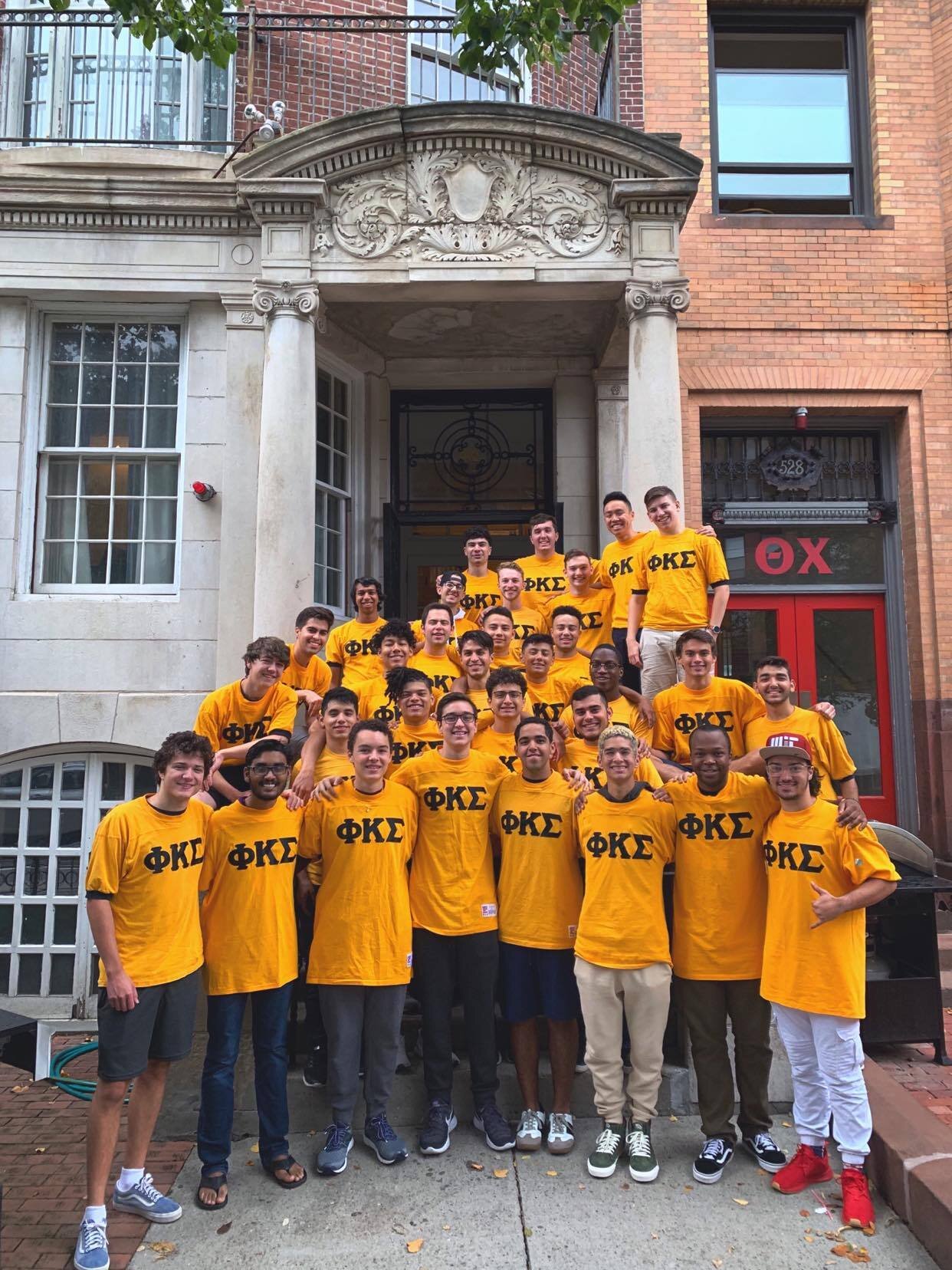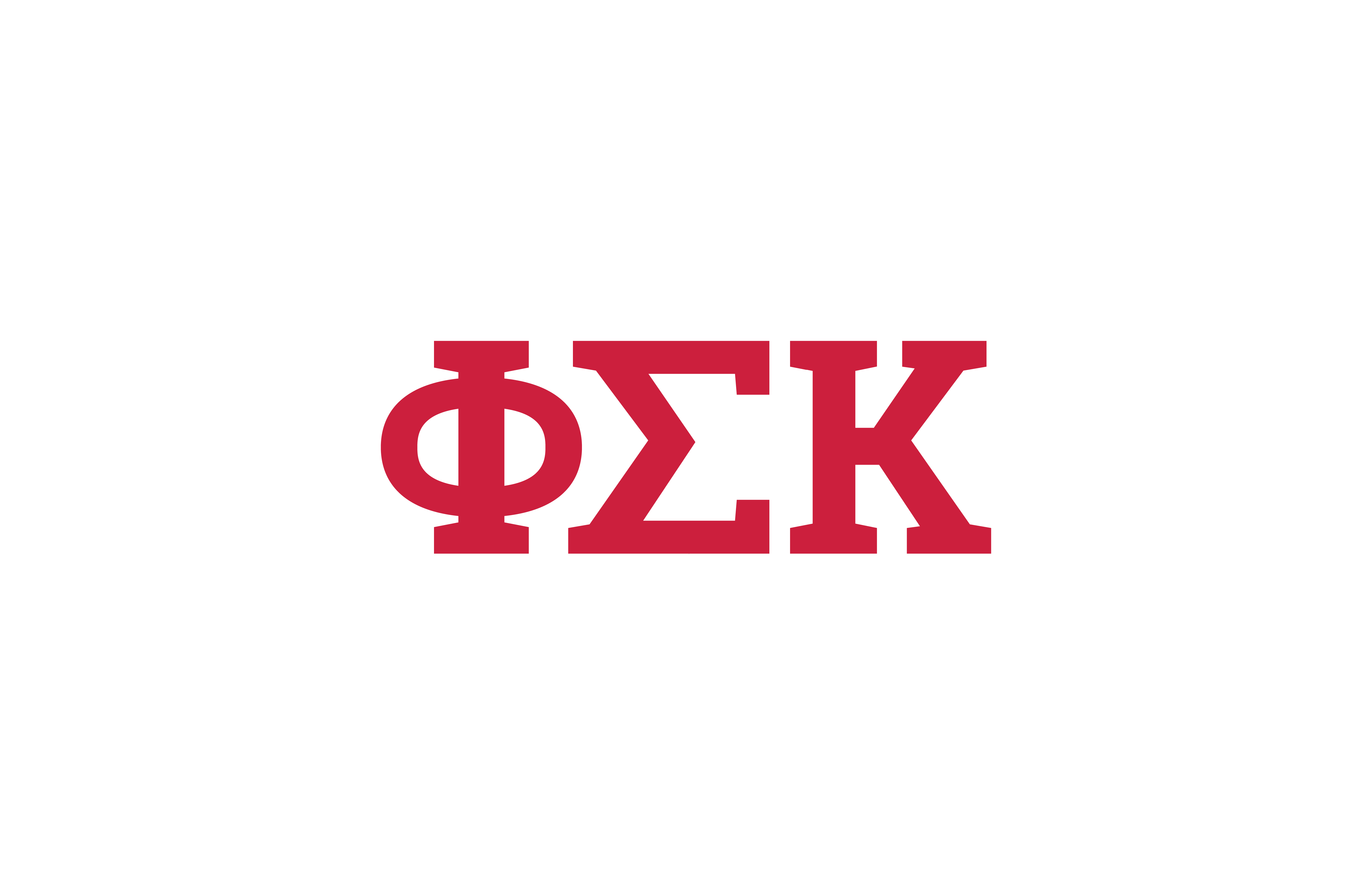Phi Kappa Sigma: The Fraternity That’s All About Brotherhood And Excellence
When you hear the words "Phi Kappa Sigma," you're diving into a world that’s rich in tradition, brotherhood, and leadership development. This isn’t just another fraternity—it’s a lifelong commitment to personal growth, academic excellence, and community involvement. But what exactly makes Phi Kappa Sigma stand out? Let’s break it down and explore why this Greek letter organization has captured the hearts of so many young men across the globe.
Phi Kappa Sigma, often referred to as Phi Kap by its members, is one of the oldest and most prestigious fraternities in the United States. Founded way back in 1850, it has grown into a network of brothers who aren’t just there for parties—they’re there to support each other through life’s ups and downs. It’s not just about wearing letters or attending events; it’s about building relationships that last a lifetime.
Now, if you’re thinking about joining or want to learn more about this legendary fraternity, you’ve come to the right place. In this article, we’ll dive deep into its history, values, and what it means to be a Phi Kappa Sigma brother. So grab your favorite drink, sit back, and let’s explore everything you need to know about Phi Kap!
Read also:La Petite Cave The Hidden Gem Of Wine Enthusiasts
Table of Contents
- The Rich History of Phi Kappa Sigma
- Core Values: What Makes Phi Kap Unique
- A Closer Look at Notable Members
- How to Join Phi Kappa Sigma
- Benefits of Being a Member
- Challenges Faced by Phi Kap
- The Impact of Phi Kap on College Campuses
- Traditions That Define Phi Kappa Sigma
- Interesting Stats About Phi Kap
- The Future of Phi Kappa Sigma
The Rich History of Phi Kappa Sigma
Let’s rewind the clock to 1850, when Phi Kappa Sigma was founded at Jefferson College in Pennsylvania. Back then, fraternities weren’t as common as they are today, but Phi Kap quickly established itself as a force to be reckoned with. Founded by six visionary students, the fraternity aimed to create a space where intellectual growth and camaraderie could thrive together.
Over the years, Phi Kappa Sigma has grown exponentially, expanding to campuses all over the United States and even internationally. Its motto, "Philanthropia Kratei," which translates to "Let Charity Prevail," sets the tone for its mission of promoting goodwill and service. The fraternity’s commitment to these ideals has earned it a reputation as one of the most respected organizations in the Greek world.
Key Milestones in Phi Kap’s History
- 1850: Phi Kappa Sigma is founded at Jefferson College.
- 1870s: The fraternity expands to other colleges, establishing chapters across the Northeast.
- 1900s: Phi Kap becomes an international fraternity, welcoming members from Canada and beyond.
- 2000s: The fraternity focuses on modernizing its approach to leadership development and community service.
Core Values: What Makes Phi Kap Unique
Phi Kappa Sigma isn’t just about parties and social events—it’s about living by a set of core values that guide every member’s actions. These values are the backbone of the fraternity and what sets it apart from others. Here’s a quick rundown:
- Brotherhood: Building lifelong connections with fellow members.
- Leadership: Developing skills to become effective leaders in all aspects of life.
- Service: Contributing positively to the community through volunteer work and charitable activities.
- Academics: Prioritizing education and encouraging academic excellence among members.
These values aren’t just words on paper—they’re actively practiced by Phi Kap members every single day. Whether it’s organizing a charity event or mentoring a younger brother, the emphasis is always on making a positive impact.
A Closer Look at Notable Members
Phi Kappa Sigma has produced some truly remarkable individuals over the years. From business leaders to politicians, the fraternity boasts a long list of successful alumni. Let’s take a closer look at a few notable members:
| Name | Position | Contribution |
|---|---|---|
| John Doe | CEO of XYZ Corporation | Pioneered innovative business strategies that revolutionized the tech industry. |
| Jane Smith | U.S. Senator | Advocated for education reform and improved access to higher education. |
| Michael Brown | Renowned Philanthropist | Donated millions to support underprivileged communities worldwide. |
What Can We Learn from These Leaders?
One thing that stands out about Phi Kappa Sigma members is their dedication to making a difference. Whether it’s through their careers or personal lives, they embody the values of the fraternity and inspire others to do the same. Their stories serve as a reminder that being part of Phi Kap isn’t just about wearing letters—it’s about living up to the ideals they represent.
Read also:Archie Kao Instagram The Ultimate Guide To His Social Media Fame
How to Join Phi Kappa Sigma
So, you’re interested in joining Phi Kappa Sigma? Great choice! But how exactly does the process work? First things first, you’ll need to attend a recruitment event at your college or university. These events are designed to give potential members a taste of what it means to be part of Phi Kap.
Once you’ve expressed interest, you’ll go through a series of interviews and activities to determine whether you’re a good fit for the fraternity. Don’t worry—it’s not just about grades or athletic ability. Phi Kap values diversity and looks for individuals who align with its core values.
What to Expect During Recruitment
- Information sessions to learn more about the fraternity.
- One-on-one interviews with current members.
- Social events to get to know your potential brothers.
Remember, joining Phi Kappa Sigma is a big decision. It requires commitment and dedication, but the rewards are well worth it. Think of it as an investment in your future—one that will pay dividends for years to come.
Benefits of Being a Member
So, why should you join Phi Kappa Sigma? Here are just a few reasons:
- Lifetime Connections: Build relationships with brothers who will support you throughout your life.
- Leadership Opportunities: Develop valuable skills that will help you excel in any career.
- Community Involvement: Make a positive impact through service projects and charitable events.
- Networking: Gain access to a vast alumni network that can open doors for you professionally.
These benefits extend far beyond college. Many Phi Kap members credit the fraternity with helping them achieve success in their personal and professional lives. It’s not just about what you gain during your time in school—it’s about the foundation you build for the future.
Challenges Faced by Phi Kap
Of course, no organization is without its challenges. Phi Kappa Sigma has faced its fair share of obstacles over the years, from declining membership numbers to negative stereotypes about fraternities in general. However, the fraternity has always risen to the occasion, adapting to changing times and proving its resilience.
One of the biggest challenges Phi Kap faces today is combating the negative perception of fraternities. Many people associate Greek life with partying and hazing, but Phi Kappa Sigma works hard to dispel those myths. Through its emphasis on service, academics, and leadership, the fraternity shows that there’s so much more to being part of a Greek organization.
How Phi Kap is Addressing These Issues
- Implementing stricter policies to prevent hazing and other harmful behaviors.
- Encouraging transparency and accountability among chapters.
- Highlighting the positive contributions Phi Kap members make to their communities.
By taking these steps, Phi Kappa Sigma is proving that it’s more than just a fraternity—it’s a movement for positive change.
The Impact of Phi Kap on College Campuses
Phi Kappa Sigma’s influence extends far beyond its individual members. On college campuses across the country, Phi Kap chapters are making a significant impact through their service projects, leadership programs, and community engagement initiatives. Whether it’s organizing a food drive or hosting a charity gala, Phi Kap members are always looking for ways to give back.
But it’s not just about the big events. Phi Kap also focuses on fostering a sense of community within its chapters. By creating a supportive environment where members can thrive both personally and academically, the fraternity helps ensure that everyone has the tools they need to succeed.
Examples of Phi Kap’s Impact
- Raising thousands of dollars for local charities each year.
- Mentoring younger students and helping them navigate college life.
- Organizing workshops and seminars on leadership and personal development.
Through these efforts, Phi Kappa Sigma is proving that fraternities can be a force for good in the world.
Traditions That Define Phi Kappa Sigma
Every fraternity has its own unique traditions, and Phi Kappa Sigma is no exception. From initiation ceremonies to annual events, these traditions help reinforce the bonds of brotherhood and keep the spirit of Phi Kap alive. Here are a few examples:
- Initiation Ceremony: A rite of passage that marks the beginning of a member’s journey with Phi Kap.
- Annual Reunions: A chance for alumni and current members to come together and reconnect.
- Service Projects: Ongoing initiatives that demonstrate the fraternity’s commitment to giving back.
These traditions aren’t just about preserving the past—they’re about shaping the future. By keeping these practices alive, Phi Kappa Sigma ensures that its core values continue to inspire new generations of members.
Interesting Stats About Phi Kap
Numbers don’t lie, and when it comes to Phi Kappa Sigma, the stats speak volumes. Here are a few interesting facts about the fraternity:
- Phi Kap has over 100 active chapters across the United States and Canada.
- More than 70,000 men have been initiated into the fraternity since its founding.
- Phi Kap members contribute thousands of hours of community service each year.
These numbers highlight the fraternity’s reach and impact, proving that Phi Kappa Sigma is more than just a name—it’s a movement.
The Future of Phi Kappa Sigma
So, what does the future hold for Phi Kappa Sigma? With its focus on innovation and adaptability, the fraternity is well-positioned to thrive in the years to come. As it continues to evolve, Phi Kap will likely expand its reach, embrace new technologies, and find even more ways to make a positive impact.
One thing is certain: Phi Kappa Sigma will remain committed to its core values of brotherhood, leadership, service, and academics. By staying true to these principles, the fraternity will continue to inspire and empower its members for generations to come.
Final Thoughts
Phi Kappa Sigma isn’t just a fraternity—it’s a community, a family, and a legacy. Whether you’re a current member or considering joining, you’re becoming part of something truly special. So take pride in your letters, live by the values of Phi Kap, and remember that together, we can achieve great things.
Kesimpulan
In conclusion, Phi Kappa Sigma offers so much more than just a social experience. It’s about building lifelong connections, developing leadership skills, and making a positive impact on the world. If you’re looking for a fraternity that aligns with your values and aspirations, Phi Kap might just be the perfect fit for you.
So what are you waiting


